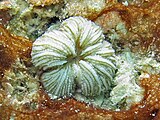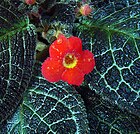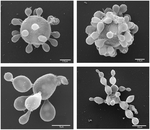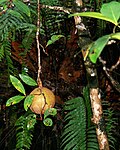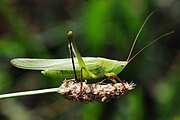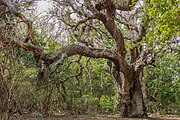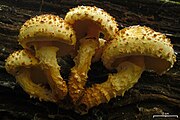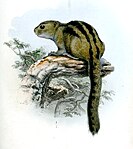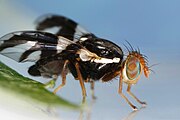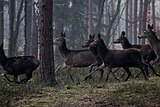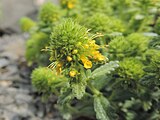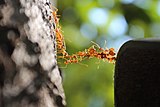User talk:Deuterostome/Archive 1
| This is an archive of past discussions with User:Deuterostome. Do not edit the contents of this page. If you wish to start a new discussion or revive an old one, please do so on the current talk page. |
| Archive 1 |
Welcome!


Welcome to Wikipedia, Deuterostome! Thank you for your contributions. I am France3470 and have been editing Wikipedia for quite some time, so if you have any questions feel free to leave me a message on my talk page. You can also check out Wikipedia:Questions or type {{helpme}} at the bottom of this page. Here are some pages that you might find helpful:
- Introduction
- The five pillars of Wikipedia
- How to edit a page
- Help pages
- How to write a great article
Also, when you post on talk pages you should sign your name using four tildes (~~~~); that will automatically produce your username and the date. I hope you enjoy editing here and being a Wikipedian!
France3470 (talk) 22:24, 15 October 2011 (UTC)
Citations
Hello. I just wanted to say great work on the really interesting and well researched articles you have created. I just wanted to point you towards WP:CITE, WP:CITET and WP:CITETOOL, which may help you your with the formatting of the referencing. There is nothing wrong with how things are at the moment (I certainly don't want to discourage you), it just seems like it could be time consuming writing it out by hand. Good luck with your further Wikipedia endeavors. I'm always around if you have any questions, France3470 (talk) 22:33, 15 October 2011 (UTC)
Welcome
I'm delighted to find a new editor with a shared interest in protists. This is a much neglected area and all contributions are appreciated.DrMicro (talk) 23:26, 25 November 2011 (UTC)
- Thanks for the encouragement! The protist pages seem to have been pretty quiet, in recent years. Deuterostome (talk) 18:19, 26 November 2011 (UTC)
- I could not agree with you more. I do maintain the Plasmodium and related pages - at least as far as I am permitted to. I do also work on the other genera of Apicomplexia - there are ~5000 species recognised in the literature. *Many* are not properly described; more than a few are in the older literature which can be a nightmare to locate. Myself I would love to have this group in some sort of order on WP - at least in part because of its medical importance. As you know too well I suspect working on the fringes of WP can get a bit lonely and it would be just great to have someone else working on this. Whether or not that would interest you as a project I have no idea. There are MORE than enough protists to go around. If you have an opinion on this one way or the other I would be most grateful if you could drop me a note on my talk page.DrMicro (talk) 11:56, 15 December 2011 (UTC)
In response to your feedback
Nice response! I saw your contributions, and it is good to say that those edits were not only a reason for you to do research here at Wikipedia, but also a reason for others to do research here. Keep on contributing, for Wikipedia is a place where articles are written by contributors like you! Thanks! Jedd Raynier (talk) 10:01, 13 January 2012 (UTC)
Disambiguation link notification for September 8
Hi. Thank you for your recent edits. Wikipedia appreciates your help. We noticed though that when you edited Didinium, you added a link pointing to the disambiguation page Order (check to confirm | fix with Dab solver). Such links are almost always unintended, since a disambiguation page is merely a list of "Did you mean..." article titles. Read the FAQ • Join us at the DPL WikiProject.
It's OK to remove this message. Also, to stop receiving these messages, follow these opt-out instructions. Thanks, DPL bot (talk) 17:43, 8 September 2012 (UTC)
Re: Didinium
Happy to be able to restore your missing image file. ツ All the best, Fylbecatulous talk 00:09, 8 November 2012 (UTC)
Disambiguation link notification for January 27
Hi. Thank you for your recent edits. Wikipedia appreciates your help. We noticed though that when you edited Ciliate, you added links pointing to the disambiguation pages Conjugation, Fission and Posterior (check to confirm | fix with Dab solver). Such links are almost always unintended, since a disambiguation page is merely a list of "Did you mean..." article titles. Read the FAQ • Join us at the DPL WikiProject.
It's OK to remove this message. Also, to stop receiving these messages, follow these opt-out instructions. Thanks, DPL bot (talk) 11:38, 27 January 2013 (UTC)
Disambiguation link notification for February 14
Hi. Thank you for your recent edits. Wikipedia appreciates your help. We noticed though that when you edited Paramecium, you added links pointing to the disambiguation pages Marine, Posterior and Pellicle (check to confirm | fix with Dab solver). Such links are almost always unintended, since a disambiguation page is merely a list of "Did you mean..." article titles. Read the FAQ • Join us at the DPL WikiProject.
It's OK to remove this message. Also, to stop receiving these messages, follow these opt-out instructions. Thanks, DPL bot (talk) 10:50, 14 February 2013 (UTC)
Disambiguation link notification for February 21
Hi. Thank you for your recent edits. Wikipedia appreciates your help. We noticed though that when you edited Paramecium caudatum, you added a link pointing to the disambiguation page Posterior (check to confirm | fix with Dab solver). Such links are almost always unintended, since a disambiguation page is merely a list of "Did you mean..." article titles. Read the FAQ • Join us at the DPL WikiProject.
It's OK to remove this message. Also, to stop receiving these messages, follow these opt-out instructions. Thanks, DPL bot (talk) 10:49, 21 February 2013 (UTC)
Disambiguation link notification for September 12
Hi. Thank you for your recent edits. Wikipedia appreciates your help. We noticed though that when you edited Amoeba, you added links pointing to the disambiguation pages Ectoplasm and Vesicles. Such links are almost always unintended, since a disambiguation page is merely a list of "Did you mean..." article titles. Read the FAQ • Join us at the DPL WikiProject.
It's OK to remove this message. Also, to stop receiving these messages, follow these opt-out instructions. Thanks, DPL bot (talk) 09:05, 12 September 2014 (UTC)
September 2014
![]() Hello, I'm BracketBot. I have automatically detected that your edit to Amoeba (amoeboid organism) may have broken the syntax by modifying 2 "()"s. If you have, don't worry: just edit the page again to fix it. If I misunderstood what happened, or if you have any questions, you can leave a message on my operator's talk page.
Hello, I'm BracketBot. I have automatically detected that your edit to Amoeba (amoeboid organism) may have broken the syntax by modifying 2 "()"s. If you have, don't worry: just edit the page again to fix it. If I misunderstood what happened, or if you have any questions, you can leave a message on my operator's talk page.
- List of unpaired brackets remaining on the page:
- [[slime mold]]s. Both the plasmodial slime molds, currently classified in the taxon [[Myxogastria]]), and the cellular slime molds of the groups [[Acrasida]] and [[Dictyosteliida]]), use amoeboid movement in their feeding stage. The cells of the former form a giant [[
It's OK to remove this message. Also, to stop receiving these messages, follow these opt-out instructions. Thanks, BracketBot (talk) 18:32, 13 September 2014 (UTC)
Please do not make cut-and-paste moves, or make massively disruptive redirects without first obtaining WP:CONSENSUS. First, if you believe that the term, Amoeba, lacks a primary topic, go to Wikipedia:Requested moves and use the template there to propose that Amoeba (disambiguation) should be moved to Amoeba. Do not make a unilateral move, or a cut-and-paste move, and do not redirect the title to the disambiguation page, which is a violation of WP:MALPLACED. Second, before any page move is made, please fix the incoming links to Amoeba and the incoming links to Amoebae. Other editors will not be as well-positioned to make these fixes. I recommend using the Auto-Wiki Browser to make large numbers of fixes quickly. bd2412 T 22:25, 13 September 2014 (UTC)
Disambiguation link notification for September 20
Hi. Thank you for your recent edits. Wikipedia appreciates your help. We noticed though that when you edited Amoeba (amoeboid organism), you added a link pointing to the disambiguation page Supergroups. Such links are almost always unintended, since a disambiguation page is merely a list of "Did you mean..." article titles. Read the FAQ • Join us at the DPL WikiProject.
It's OK to remove this message. Also, to stop receiving these messages, follow these opt-out instructions. Thanks, DPL bot (talk) 09:16, 20 September 2014 (UTC)
Edits to Amoeba
Hi Deuterostome,
If you think that it is better to improve it, ok. Thanks! Zorahia (talk) 02:23, 25 February 2015 (UTC)
- Hello Deuterostome,
- I accept the reversion of my edits, the text is really somewhat confusing. You may put them in the Talk Page for discussion. Thanks, Zorahia (talk) 14:54, 25 February 2015 (UTC)
Ok. I only think that the article should have both type of informations, more detailed, for specialists, and more general, for non-specialist. What you think? Zorahia (talk) 14:19, 26 February 2015 (UTC)
Well, in relation to Pugachev informal classification of Radiolaria and Heliozoa, I added it to the Wikispecies page of Heliozoa. I'm searching for a old but formal classification of Heliozoa, similar to that of Rhizopoda by Page. Maybe Siemensma (1991) will serve, but I think that it doesn't include Pedinellida, Taxopodida and Rotosphaerida as heliozoans. Thanks, Zorahia (talk) 01:00, 28 February 2015 (UTC)
- Good work in the article! I would just add some remarks:
- I think that the article title should be un-italicized.
- In the introduction ("Amoeboid cells occur not only among the protozoa, but also fungi, algae and animals"): Similar to what is said about flagellated cells in Flagellum, I would rather say: "Amoeboid cells occurs in many eukaryotic groups, as a relatively perennial condition (either as a level of organization, in many protozoans, or as specialized cells, as leukocytes in animals), or as amoeboid life cycle stages."
- In the section "Amoebae in multicellular organisms: animals and slime molds": I would like to change the title to something more general like: "Amoebae as specialized cells and life cycle stages". I also would add the comment: "Other organisms may also present amoeboid life-cycle stages, e.g., the gametes of some green algae (Zygnematophyceae), of pennate diatoms, of some foraminiferans, or the spores of some Mesomycetozoea."
- In the section "Classification": Similar to the organization of the article Flagellate, the title of the section "Classification" could be "Sarcodina" or "Classification of the Sarcodina". A comment in this section could explain that "the Sarcodina dealed mainly with eukaryotes with an 'amoeboid level of organization', but also with some forms that were considered evolutively related to them, e.g., the slime molds, which have amoeboid cells only in some stages of their life cycles." Zorahia (talk) 15:27, 1 March 2015 (UTC)
Thanks. I included the foraminiferans, with a reference. And I have also another suggestion to the title of the "Classification" section: "Amoebae as Organisms", or "Amoebae as Organisms: the Sarcodina" Zorahia (talk) 19:17, 1 March 2015 (UTC)
Disambiguation link notification for October 25
Hi. Thank you for your recent edits. Wikipedia appreciates your help. We noticed though that when you edited Haematractidium, you added a link pointing to the disambiguation page SAR. Such links are almost always unintended, since a disambiguation page is merely a list of "Did you mean..." article titles. Read the FAQ • Join us at the DPL WikiProject.
It's OK to remove this message. Also, to stop receiving these messages, follow these opt-out instructions. Thanks, DPL bot (talk) 11:35, 25 October 2015 (UTC)
Hi,
You appear to be eligible to vote in the current Arbitration Committee election. The Arbitration Committee is the panel of editors responsible for conducting the Wikipedia arbitration process. It has the authority to enact binding solutions for disputes between editors, primarily related to serious behavioural issues that the community has been unable to resolve. This includes the ability to impose site bans, topic bans, editing restrictions, and other measures needed to maintain our editing environment. The arbitration policy describes the Committee's roles and responsibilities in greater detail. If you wish to participate, you are welcome to review the candidates' statements and submit your choices on the voting page. For the Election committee, MediaWiki message delivery (talk) 16:46, 24 November 2015 (UTC)
Ascetosporea
Hi, Deuterostome! I added a note on the article. Zorahia (talk) 22:58, 17 February 2016 (UTC)
Protist
hi,
I am not sure where I should post reply, but doing it here since you will get the notification for this.
- My aim is to simplify lede not get into edit war
- the source for the summary I provided is Kingdom_(biology)#Summary. I am not biased towards any single external source
- I note that the concept of Kingdoms is not as relevant today as Clades (since the re-organisation of Protista)
- from an encyclopedia point of view the nice thing about Cavalier-Smith’s re-organisation is he provides an equivalent Kingdom-type classification without impinging on modern clade style classification
If you consider Cavalier-Smith’s classification is not representative, then I think, you will have to mention 2 things clearly in the lede
- 1) specify, what is the current usage of protist - if not relevant then state the last used meaning & till when it was used
- 2) how modern clade based systems view protist/proctista/protozoa and where do they fit in it etc
you can provide the above information in lieu of the 1st paragraph I have created and retain the rest, which was aready present. I just re-arranged the sentences to make the flow of information read better J mareeswaran (talk) 14:00, 26 February 2016 (UTC)
- Thanks. I've replied on your talk page. Deuterostome (talk) 15:22, 26 February 2016 (UTC)
- ok
- the following statements from your comment can be in the lede to avoid confusion for those who are new to this J mareeswaran (talk) 15:38, 26 February 2016 (UTC)
there is no cladistic equivalent to the taxon Protista, a group which spans the entire eukaryotic tree of life. Indeed, the nearest cladistic equivalent would be Eukaryota itself! In cladistic classification, the contents of Protista are distributed among various supergroups (SAR, Archaeplastida, Opisthokonta, etc.) and neither "protists" nor "protozoa" are mentioned at all.
- please check the latest changes if that suits the purpose J mareeswaran (talk) 19:01, 28 February 2016 (UTC)
Can we have some specific examples in the Lede where it makes sense to use Protist in "scientific" & not just "informal" contexts? That would help laymen to get a better-clarity / accurate-picture of what protists are in current usage. I have added comments in Talk:Protist#Lede_is_confusing_.26_Modern_Classifications_section_is_way_better - please have a look and provide your comments there. Thanks J mareeswaran (talk) 13:57, 3 March 2016 (UTC)
Eukaryota template
Hi, could you take a look into the discussion at Template talk:Eukaryota#Modifications proposal, please?Zorahia (talk) 15:51, 4 April 2016 (UTC)
Disambiguation link notification for May 5
Hi. Thank you for your recent edits. Wikipedia appreciates your help. We noticed though that when you edited Breviata, you added a link pointing to the disambiguation page Anaerobic. Such links are almost always unintended, since a disambiguation page is merely a list of "Did you mean..." article titles. Read the FAQ • Join us at the DPL WikiProject.
It's OK to remove this message. Also, to stop receiving these messages, follow these opt-out instructions. Thanks, DPL bot (talk) 09:55, 5 May 2016 (UTC)
Amoeba sizes
Thanks very much! (20 centimeters?!?) --Doradus (talk) 12:42, 22 August 2016 (UTC)
Editing Template:Alveolata
Hi thanks very much for your comments and guidance. The source for some of the clades was by Gao et al. 2016.[1]
Also you in reverting the edits you removed some of the new clades from the Dinoflagellata and other early diverging Myzozoa that I created. The references for those new clades are Ruggiero et al. 2015[2] and Silar 2016[3].
Videsh Ramsahai (talk) 16:10, 1 September 2016 (UTC)
- ^ Gao; et al. (2016), "The All-Data-Based Evolutionary Hypothesis of Ciliated Protists with a Revised Classification of the Phylum Ciliophora (Eukaryota, Alveolata)", Scientific Reports, 6, doi:10.1038/srep24874
- ^ Ruggiero; et al. (2015), "Higher Level Classification of All Living Organisms", PLoS ONE, 10 (4), doi:10.1371/journal.pone.0119248
{{citation}}: CS1 maint: unflagged free DOI (link) - ^ Silar, Philippe (2016), "Protistes Eucaryotes: Origine, Evolution et Biologie des Microbes Eucaryotes", HAL archives-ouvertes: 1–462
Ecozone
Hi Deuterostome, could you take a look at Talk:Ecozone? Zorahia (talk) 03:25, 13 September 2016 (UTC)
Re euks
Thank you for your comments. I have reviewed the literature on Kakabekia. There is one paper that reports that this organisms lacks a nucleus. The other papers are silent on what group of organisms it belongs to.
It is a strict anaerobe which is suggestive of a prokaryotic origin but there is no DNA or other taxonomic study to suggest group it belongs to.
On the balance I think you are probably correct and that Kakabekia should be removed from the template. Virion123 (talk) 17:01, 27 September 2016 (UTC)
Megalytrum is probably a cyanobacterium. Its coccoid appearance is sugestive of some of the algae so I am not sure about that one either. However this is a minor point and I think I will remove this one from the list also.Virion123 (talk) 17:05, 27 September 2016 (UTC)
Chromalveolata colour
The reason the colour doesn't show automatically is that the unranked_regnum is not either "Chromalveolata" or "[[Chromalveolata]]", but is bolded and has a long comment after it. The taxobox code isn't intelligent enough to figure this out, even if it does heal itself... Peter coxhead (talk) 17:28, 2 November 2016 (UTC)
- @Peter coxhead:Ha! :D I should have thought of inserting
| color = {{Taxobox colour|Chromalveolata}}. I have some free time this aft, and am purging the greenyellows from Alveolata. Heterokonts next. Deuterostome (Talk) 17:38, 2 November 2016 (UTC)- I would hold off yet on any taxa falling into the Eukayota but not into a currently recognized taxon which has a colour defined in {{Taxobox colour}}. We can't, I think, define different colours for all the subgroups of Eukayota: there are more than there are suitable distinguishable colours. So I intend to set up a colour which will serve as a default for eukaryotes with no other colour defined. However, this needs some changes to {{Taxobox}} and some other templates. Plantdrew has been helping me with the tests, and so far so good, but I need a bit more time. Peter coxhead (talk) 22:07, 2 November 2016 (UTC)
- @Peter coxhead: OK, I'll leave any orphan taxa alone. A default Eukaryote colour is a great idea for groups like the breviates that are no longer really incertae sedis, but don't fall within the better-known supergroups. Deuterostome (Talk) 22:46, 2 November 2016 (UTC)
- Yes, another example is Apusozoa. Given the classification in the taxobox, it's not incertae sedis, since it's known to be a eukaryote. A real incertae sedis is Charnia, and I think only such cases should have the incertae sedis colour. Peter coxhead (talk)
- @Peter coxhead: OK, I'll leave any orphan taxa alone. A default Eukaryote colour is a great idea for groups like the breviates that are no longer really incertae sedis, but don't fall within the better-known supergroups. Deuterostome (Talk) 22:46, 2 November 2016 (UTC)
- I would hold off yet on any taxa falling into the Eukayota but not into a currently recognized taxon which has a colour defined in {{Taxobox colour}}. We can't, I think, define different colours for all the subgroups of Eukayota: there are more than there are suitable distinguishable colours. So I intend to set up a colour which will serve as a default for eukaryotes with no other colour defined. However, this needs some changes to {{Taxobox}} and some other templates. Plantdrew has been helping me with the tests, and so far so good, but I need a bit more time. Peter coxhead (talk) 22:07, 2 November 2016 (UTC)
Pythium sylvaticum
Could you look at Pythium sylvaticum, please? There were some edits after yours, which may be sound but messed up the taxobox, so I reverted them. Peter coxhead (talk) 07:34, 16 November 2016 (UTC)
- @Peter coxhead:The edits were based on a fairly recent revision of the genus Pythium (Uzuhashi et al, 2010), and I didn't find any more recent work that repudiates the removal of this species to Globisporangium. The high-level classification is valid, too, though inconsistent with the use of SAR on most Wikipedia pages...and, of course, Kingdom Chromista has no colour! If you're OK with it, I'll create a page for Globisporangium sylvaticum, move the article contents there and put a redirect at Pythium sylvaticum. I'll put it under SAR in the taxobox, though, since that's where we have all the other "water moulds." Deuterostome (Talk) 12:58, 16 November 2016 (UTC)
- Seems sensible to me; my only concern was that it was appearing in the category for invalid taxobox colours (as you say, because "Chromista" has no colour). Peter coxhead (talk) 15:19, 16 November 2016 (UTC)
ArbCom Elections 2016: Voting now open!
Hello, Deuterostome. Voting in the 2016 Arbitration Committee elections is open from Monday, 00:00, 21 November through Sunday, 23:59, 4 December to all unblocked users who have registered an account before Wednesday, 00:00, 28 October 2016 and have made at least 150 mainspace edits before Sunday, 00:00, 1 November 2016.
The Arbitration Committee is the panel of editors responsible for conducting the Wikipedia arbitration process. It has the authority to impose binding solutions to disputes between editors, primarily for serious conduct disputes the community has been unable to resolve. This includes the authority to impose site bans, topic bans, editing restrictions, and other measures needed to maintain our editing environment. The arbitration policy describes the Committee's roles and responsibilities in greater detail.
If you wish to participate in the 2016 election, please review the candidates' statements and submit your choices on the voting page. MediaWiki message delivery (talk) 22:08, 21 November 2016 (UTC)
Reference errors on 30 January
![]() Hello, I'm ReferenceBot. I have automatically detected that an edit performed by you may have introduced errors in referencing. It is as follows:
Hello, I'm ReferenceBot. I have automatically detected that an edit performed by you may have introduced errors in referencing. It is as follows:
- On the Litostomatea page, your edit caused a PMC error (help). (Fix | Ask for help)
Please check this page and fix the errors highlighted. If you think this is a false positive, you can report it to my operator. Thanks, ReferenceBot (talk) 00:24, 31 January 2017 (UTC)
ArbCom 2017 election voter message
Hello, Deuterostome. Voting in the 2017 Arbitration Committee elections is now open until 23.59 on Sunday, 10 December. All users who registered an account before Saturday, 28 October 2017, made at least 150 mainspace edits before Wednesday, 1 November 2017 and are not currently blocked are eligible to vote. Users with alternate accounts may only vote once.
The Arbitration Committee is the panel of editors responsible for conducting the Wikipedia arbitration process. It has the authority to impose binding solutions to disputes between editors, primarily for serious conduct disputes the community has been unable to resolve. This includes the authority to impose site bans, topic bans, editing restrictions, and other measures needed to maintain our editing environment. The arbitration policy describes the Committee's roles and responsibilities in greater detail.
If you wish to participate in the 2017 election, please review the candidates and submit your choices on the voting page. MediaWiki message delivery (talk) 18:42, 3 December 2017 (UTC)
Hi. I have reverted your change. Taxa are normally in aphabetical order and that was the only reason for putting them in this order. I make and have made no comment on the validity of Varisulca taxon as this is a very very messy area. I'm fairly good on the Apicomplexia - I know that there is a BIG revision needed here as the gregarines have been shown to be an incorrect grouping - but I am no expert on the taxa currently grouped under Varisulca. The re ordering was not meant to confuse but merely to bring the ordering into the usual format for taxa: extant before extinct then alphabetical. I don't think any reasonable person could object to that. It does make life a little easier looking for taxa. Hope you will agree that this is OK. Virion123 (talk) 19:02, 17 December 2017 (UTC)
Thank you for pointing out my mistake. This particular template is difficult to work with. I will do as you suggest. Virion123 (talk) 10:07, 18 December 2017 (UTC)
- This mistake was corrected before I could get to it. Virion123 (talk) 10:12, 18 December 2017 (UTC)
- As promised the issue was addressed as soon as I possibly could deal with it. Thank you. Virion123 (talk) 11:41, 18 December 2017 (UTC)
Your signature
Please be aware that your signature uses deprecated <font> tags, which are causing Obsolete HTML tags lint errors.
You are encouraged to change
<small><span style="border:1px solid black;padding:1px;">[[User:Deuterostome|<font style="color:DarkOliveGreen;background:Gainsboro;font-family:sans-serif;">''' Deuterostome '''</font>]]</span></small> [[User talk:Deuterostome|(Talk)]]: Deuterostome (Talk)
to
<small><span style="border:1px solid black;padding:1px;">[[User:Deuterostome|<b style="color:DarkOliveGreen;background:Gainsboro;font-family:sans-serif;"> Deuterostome </b>]]</span></small> [[User talk:Deuterostome|(Talk)]]: Deuterostome (Talk)
—Anomalocaris (talk) 20:01, 12 January 2018 (UTC)
Most users are updating their signatures as requested. We hope you will also. —Anomalocaris (talk) 09:40, 28 January 2018 (UTC)
- @Anomalocaris: Thanks for the reminder, and sorry for the delay (I was traveling when you posted the first notification, and forgot to make the change when I returned home). Deuterostome (Talk) : Deuterostome (Talk) 13:47, 28 January 2018 (UTC)
- Great, thanks! But it looks like you copied both the markup and the signature as plain text into the signature field; I expected you to copy just the markup. I don't think you want the extra
: Deuterostome (Talk)at the end of your signature, do you? —Anomalocaris (talk) 17:56, 28 January 2018 (UTC)- @Anomalocaris: Oops, that was sloppy of me. I think I've fixed it...thanks again! Deuterostome (Talk) 18:54, 28 January 2018 (UTC)
- Great, thanks! —Anomalocaris (talk) 23:03, 28 January 2018 (UTC)
- @Anomalocaris: Oops, that was sloppy of me. I think I've fixed it...thanks again! Deuterostome (Talk) 18:54, 28 January 2018 (UTC)
- Great, thanks! But it looks like you copied both the markup and the signature as plain text into the signature field; I expected you to copy just the markup. I don't think you want the extra
Comment on Axodines?
Hi Deuterostome! We communicated once before about the Axodine page and my efforts for consistency throughout it and others, so I'm reaching out again now for a second opinion. As I've been working to clean up these pages, I've just gotten more and more weirded out by this particular group. The Axodines aren't acknowledged in Algaebase or the NCBI taxonomy, and each of the orders that it claims are classified elsewhere in those databases. I'm wondering whether we even need this page, or if it should be renamed to Dictyochophyceae per Algaebase, or ???
We should also figure out the sensu stricto vs sensu lato thing- it's quite confusing, and there should at least be a note within the text about it. Daemyth (talk) 17:03, 19 April 2018 (UTC)
- @Daemyth:I sympathize with your "weirded-outness." What a mess! To be clear...I don't normally edit stramenopiles, and don't have a solid understanding of the groups that have been proposed, over the years. As far as I can tell, axodines (a morphologically defined group, proposed by David Patterson in '94) is very seldom used. A search in Google Scholar turns up a grand total of 47 occurrences (mostly in papers not directly concerned with phylogeny and classification). Actinochrysophyceae (the authority for which should be Cavalier-Smith et al, 1996, and not Mikrjukov & Patterson, 2001, as it appears in the axodine taxobox)appears to have the same composition as Actinochrysea (=Actinochrysia). However, as far as I can see, that group (made up of pedinellids + dictyochids) excludes raphidophytes (such as actinophryids, included here in "axodines"). In short, this page seems to be a genuine hairball of partially-overlapping and variously-defined groups. The hairball extends to other articles (some of which include makeshift, synthetic phylogenetic trees, courtesy of certain editors who are addicted to building these), and to the stramenopiles template. To sort it all out would be a lot of work, I think, but it should be done. It is certainly awkward that the little-used grouping "axodines" has such prominence on Wikipedia, and if you can figure out a good plan for eliminating the page, redirecting appropriately and rewriting any taxoboxes that link to it, that would be great. The safest route might be just to follow a widely-used classification, such as Adl et al., 2012 or Ruggiero et al., 2015 (neither of which attempts to clump actinophryids with dictyochophytes). Deuterostome (Talk) 12:57, 20 April 2018 (UTC)
- @Deuterostome: I'm glad you agree! I guess I know what I'll be doing this weekend. I'll try to keep tabs on all the changes on the Axodine talk page so that you or anyone who ends up caring can check in whenever. Daemyth (talk) 19:38, 20 April 2018 (UTC)
ArbCom 2018 election voter message
Hello, Deuterostome. Voting in the 2018 Arbitration Committee elections is now open until 23.59 on Sunday, 3 December. All users who registered an account before Sunday, 28 October 2018, made at least 150 mainspace edits before Thursday, 1 November 2018 and are not currently blocked are eligible to vote. Users with alternate accounts may only vote once.
The Arbitration Committee is the panel of editors responsible for conducting the Wikipedia arbitration process. It has the authority to impose binding solutions to disputes between editors, primarily for serious conduct disputes the community has been unable to resolve. This includes the authority to impose site bans, topic bans, editing restrictions, and other measures needed to maintain our editing environment. The arbitration policy describes the Committee's roles and responsibilities in greater detail.
If you wish to participate in the 2018 election, please review the candidates and submit your choices on the voting page. MediaWiki message delivery (talk) 18:42, 19 November 2018 (UTC)
ArbCom 2018 election voter message
Hello, Deuterostome. Voting in the 2018 Arbitration Committee elections is now open until 23.59 on Sunday, 3 December. All users who registered an account before Sunday, 28 October 2018, made at least 150 mainspace edits before Thursday, 1 November 2018 and are not currently blocked are eligible to vote. Users with alternate accounts may only vote once.
The Arbitration Committee is the panel of editors responsible for conducting the Wikipedia arbitration process. It has the authority to impose binding solutions to disputes between editors, primarily for serious conduct disputes the community has been unable to resolve. This includes the authority to impose site bans, topic bans, editing restrictions, and other measures needed to maintain our editing environment. The arbitration policy describes the Committee's roles and responsibilities in greater detail.
If you wish to participate in the 2018 election, please review the candidates and submit your choices on the voting page. MediaWiki message delivery (talk) 18:42, 19 November 2018 (UTC)
Disambiguation link notification for November 29
Hi. Thank you for your recent edits. An automated process has detected that when you recently edited Hemimastigophora, you added a link pointing to the disambiguation page Spironema (check to confirm | fix with Dab solver). Such links are usually incorrect, since a disambiguation page is merely a list of unrelated topics with similar titles. (Read the FAQ • Join us at the DPL WikiProject.)
It's OK to remove this message. Also, to stop receiving these messages, follow these opt-out instructions. Thanks, DPL bot (talk) 09:35, 29 November 2018 (UTC)
WikiProject Tree of Life Newsletter

- April 2019—Issue 001
- Tree of Life
- Welcome to the inaugural issue of the Tree of Life newsletter!
|
|
|
|
- WikiCup heating up
Tree of Life editors are making a respectable showing in this year's WikiCup, with three regular editors advancing to the third round. Overall winner from 2016, Casliber, topped the scoreboard in points for round 2, getting a nice bonus for bringing Black mamba to FA. Enwebb continues to favor things remotely related to bats, bringing Stellaluna to GA. Plants editor Guettarda also advanced to round 3 with several plant-related DYKs.
- Wikipedia page views track animal migrations, flowers blooming
A March 2019 paper in PLOS Biology found that Wikipedia page views vary seasonally for species. With a dataset of 31,751 articles about species, the authors found that roughly a quarter of all articles had significant seasonal variations in page views on at least one language version of Wikipedia. They examined 245 language versions. Page views also peaked with cultural events, such as views of the Great white shark article during Shark Week or Turkey during Thanksgiving.

- Did you know ... that Tree of Life editors bring content to the front page nearly every day?
* ... that Dippy is the most famous dinosaur skeleton in the world? (1 April)
|
You are receiving this because you added your name to the subscribers list of the WikiProject Tree of Life. If you no longer wish to receive the newsletter, please remove your name.
MediaWiki message delivery (talk) 16:24, 7 May 2019 (UTC)
May 2019 Tree of Life Newsletter

- May 2019—Issue 002
- Tree of Life
- Welcome to the Tree of Life newsletter!
|
|
|
|
- Fundamental changes being discussed at WikiProject Biology
On 23 May, user Prometheus720 created a talk page post, "Revamp of Wikiproject Biology--Who is In?". In the days since, WP:BIOL has been bustling with activity, with over a dozen editors weighing in on this discussion, as well as several others that have subsequently spawned. An undercurrent of thought is that WP:BIOL has too many subprojects, preventing editors from easily interacting and stopping a "critical mass" of collaboration and engagement. Many mergers and consolidations of subprojects have been tentatively listed, with a consolidation of WikiProjects Genetics + Molecular and Cell Biology + Computational Biology + Biophysics currently in discussion. Other ideas being aired include updating old participants lists, redesigning project pages to make them more user-friendly, and clearly identifying long- and short-term goals.
- Editor Spotlight: These editors want you to write about dinosaurs
Editors FunkMonk and Jens Lallensack had a very fruitful month, collaborating to bring two dinosaur articles to GA and then nominating them both for FA. They graciously decided to answer some questions for the first ToL Editor Spotlight, giving insight to their successful collaborations, explaining why you should collaborate with them, and also sharing some tidbits about their lives off-Wikipedia.
1) Enwebb: How long have you two been collaborating on articles?
- Jens Lallensack: I started in the German Wikipedia in 2005 but switched to the English Wikipedia because of its very active dinosaur project. My first major collaboration with FunkMonk was on Heterodontosaurus in 2015.
- FunkMonk: Yeah, we had interacted already on talk pages and through reviewing each other's articles, and at some point I was thinking of expanding Heterodontosaurus, and realised Jens had already written the German Wikipedia version, so it seemed natural to work together on the English one. Our latest collaboration was Spinophorosaurus, where by another coincidence, I had wanted to work on that article for the WP:Four Award, and it turned out that Jens had a German book about the expedition that found the dinosaur, which I wouldn't have been able to utilise with my meagre German skills. Between those, we also worked on Brachiosaurus, a wider Dinosaur Project collaboration between several editors.
2) Enwebb: Why dinosaurs?
- JL: Because of the huge public interest in them. But dinosaurs are also highly interesting from a scientific point of view: key evolutionary innovations emerged within this group, such as warm-bloodedness, gigantism, and flight. Dinosaur research is, together with the study of fossil human remains, the most active field in paleontology. New scientific techniques and approaches tend to get developed within this field. Dinosaur research became increasingly interdisciplinary, and now does not only rely on various fields of biology and geology, but also on chemistry and physics, among others. Dinosaurs are therefore ideal to convey scientific methodology to the general public.
- FM: As outlined above, dinosaurs have been described as a "gateway to science"; if you learn about dinosaurs, you will most likely also learn about a lot of scientific fields you would not necessarily be exposed to otherwise. On a more personal level, having grown up with and being influenced by various dinosaur media, it feels pretty cool to help spread knowledge about these animals, closest we can get to keeping them alive.
3) Enwebb: Why should other editors join you in writing articles related to paleontology? Are you looking to attract new editors, or draw in experienced editors from other areas of Wikipedia?
- JL: Because we are a small but active and helpful community. Our Dinosaur collaboration, one of the very few active open collaborations in Wikipedia, makes high-level writing on important articles easier and more fun. Our collaboration is especially open to editors without prior experience in high-level writing. But we do not only write articles: several WikiProject Dinosaur participants are artists who do a great job illustrating the articles, and maintain an extensive and very active image review system. In fact, a number of later authors started with contributing images.
- FM: Anyone who is interested in palaeontology is welcome to try writing articles, and we would be more than willing to help. I find that the more people that work on articles simultaneously with me, the more motivation I get to write myself. I am also one of those editors who started out contributing dinosaur illustrations and making minor edits, and only began writing after some years. But when I got to it, it wasn't as intimidating as I had feared, and I've learned a lot in the process. For example anatomy; if you know dinosaur anatomy, you have a very good framework for understanding the anatomy of other tetrapod animals, including humans.
4) Enwebb: Between the two of you, you have over 300 GA reviews. FunkMonk, you have over 250 of those. What keeps you coming back to review more articles?
- FM: One of the main reasons I review GANs is to learn more about subjects that seem interesting (or which I would perhaps not come across otherwise). There are of course also more practical reasons, such as helping an article on its way towards FAC, to reduce the GAN backlog, and to "pay back" when I have a nomination up myself. It feels like a win-win situation where I can be entertained by interesting info, while also helping other editors get their nominations in shape, and we'll end up with an article that hopefully serves to educate a lot of people (the greater good).
- JL: Because I enjoy reading Wikipedia articles and like to learn new things. In addition, reviews give me the opportunity to have direct contact with the authors, and help them to make their articles even better. This is quite rewarding for me personally. But I also review because I consider our GA and FA system to be of fundamental importance for Wikipedia. When I started editing Wikipedia (the German version), the article promotion reviews motivated me and improved my writing skills a lot. Submitting an article for review requires one to get serious and take additional steps to bring the article to the best quality possible. GAs and FAs are also a good starting point for readers, and may motivate them to become authors themselves.
5) Enwebb: What are your editing preferences? Any scripts or gadgets you find invaluable?
- FM: One script that everyone should know about is the duplink highlight tool. It will show duplinks within the intro and body of a given article separately, and it seems a lot of people still don't know about it, though they are happy when introduced to it. I really liked the citationbot too (since citation consistency is a boring chore to me), but it seems to be blocked at the moment due to some technical issues.
- JL: I often review using the Wikipedia Beta app on my smartphone, as it allows me to read without needing to sit in front of the PC. For writing, I find the reference management software Zotero invaluable, as it generates citation templates automatically, saving a lot of time.
- Editor's note: I downloaded Zotero and tried it for the first time and think it is a very useful tool. More here.
6) Enwebb: What would surprise the ToL community to learn about your life off-wiki?
- FM: Perhaps that I have no background in natural history/science, but work with animation and games. But fascination with and knowledge of nature and animals is actually very helpful when designing and animating characters and creatures, so it isn't that far off, and I can actually use some of the things I learn while writing here for my work (when I wrote the Dromaeosauroides article, it was partially to learn more about the animal for a design-school project).
- JL: That I am actually doing research on dinosaurs. Though I avoid writing about topics I publish research on, my Wikipedia work helps me to keep a good general overview over the field, and quite regularly I can use what I learned while writing for Wikipedia for my research.
Get in touch with these editors regarding collaboration at WikiProject Dinosaurs!
- Marine life continues to dominate ToL DYKs
|
You are receiving this because you added your name to the subscribers list of the WikiProject Tree of Life. If you no longer wish to receive the newsletter, please remove your name.
Sent by DannyS712 (talk) using MediaWiki message delivery (talk) at 03:44, 4 June 2019 (UTC)
June 2019 Tree of Life Newsletter

- June 2019—Issue 003
- Tree of Life
- Welcome to the Tree of Life newsletter!
|
|
|
|
| Project name | Relative WikiWork |
|---|---|
| Cats | 4.79
|
| Fisheries and fishing | 4.9
|
| Dogs | 4.91
|
| Viruses | 4.91
|
| ToL | 4.94
|
| Cetaceans | 4.97
|
| Primates | 4.98
|
| Sharks | 5.04
|
| All wikiprojects average | 5.05
|
| Dinosaurs | 5.12
|
| Equine | 5.15
|
| Bats | 5.25
|
| Mammals | 5.32
|
| Aquarium fishes | 5.35
|
| Hypericaceae | 5.38
|
| Turtles | 5.4
|
| Birds | 5.46
|
| Australian biota | 5.5
|
| Marine life | 5.54
|
| Animals | 5.56
|
| Paleontology | 5.57
|
| Rodents | 5.58
|
| Amphibians and Reptiles | 5.64
|
| Fungi | 5.65
|
| Bivalves | 5.66
|
| Plants | 5.67
|
| Algae | 5.68
|
| Arthropods | 5.69
|
| Hymenoptera | 5.72
|
| Microbiology | 5.72
|
| Cephalopods | 5.74
|
| Fishes | 5.76
|
| Ants | 5.79
|
| Gastropods | 5.8
|
| Spiders | 5.86
|
| Insects | 5.9
|
| Beetles | 5.98
|
| Lepidoptera | 5.98
|
- Spineless editors overwhelmed by stubs
Within the Tree of Life and its many subprojects, there is an abundance of stubs. Welcome to Wikipedia, what's new, right? However, based on all wikiprojects listed (just over two thousand), the Tree of Life project is worse off in average article quality than most. Based on the concept of relative WikiWork (the average number of "steps" needed to have a project consisting of all featured articles (FAs), where stub status → FA consists of six steps), only seven projects within the ToL have an average rating of "start class" or better. Many projects, particularly those involving invertebrates, hover at an average article quality slightly better than a stub. With relative WikiWorks of 5.98 each, WikiProject Lepidoptera and WikiProject Beetles have the highest relative WikiWork of any project. Given that invertebrates are incredibly speciose, it may not surprise you that many articles about them are lower quality. WikiProject Beetles, for example, has over 20 times more articles than WikiProject Cats. Wikipedia will always be incomplete, so we should take our relatively low WikiWork as motivation to write more articles that are also better in quality.
- Editor Spotlight: Showing love to misfit taxa
We're joined for this month's Editor Spotlight by NessieVL, a long-time contributor who lists themselves as a member of WikiProject Fungus, WikiProject Algae, and WikiProject Cephalopods.
1) Enwebb: How did you come to edit articles about organisms and taxonomic groups?
- Nessie: The main force, then and now, driving me to create or edit articles is thinking "Why isn't there an article on that on Wikipedia?" Either I'll read about some rarely-sighted creature in the deep sea or find something new on iNaturalist and want to learn more. First stop (surprise!) is Wikipedia, and many times there is just a stub or no page at all. Sometimes I just add the source that got me to the article, not sometimes I go deep and try to get everything from the library or online journals and put it all in an article. The nice thing about taxa is the strong precedent that all accepted extant taxa are notable, so one does not need to really worry about doing a ton of research and having the page get removed. I was super worried about this as a new editor: I still really dislike conflict so if I can avoid it I do. Anyway, the most important part is stitching an article in to the rest of Wikipedia: Linking all the jargon, taxonomers, pollinators, etc., adding categories, and putting in the correct WikiProjects. Recently I have been doing more of the stitching-in stuff with extant articles. The last deep-dive article I made was Karuka at the end of last year, which is a bit of a break for me. I guess it's easier to do all the other stuff on my tablet while watching TV.
2) Enwebb: Many editors in the ToL are highly specialized on a group of taxa. A look at your recently created articles includes much diversity, though, with viruses, bacteria, algae, and cnidarians all represented—are there any commonalities for the articles you work on? Would you say you're particularly interested in certain groups?
- Nessie: I was a nerd from a time when that would get you beat up, so I like odd things and underdogs. I also avoid butting heads, so not only do I find siphonophores and seaweeds fascinating I don't have to worry about stepping on anyone's toes. I go down rabbitholes where I start writing an article like Mastocarpus papillatus because I found some growing on some rocks, then in my research I see it is parasitized by Pythium porphyrae, which has no article, and how can that be for an oomycete that oddly lives in the ocean and also attacks my tasty nori. So then I wrote that article and that got me blowing off the dust on other Oomycota articles, encouraged by the pull of propagating automatic taxoboxes. Once you've done the taxonomy template for the genus, well then you might as well do all the species now that the template is taken care of for them too. and so on until I get sucked in somewhere else. I think it's good to advocate for some of these 'oddball' taxa as it makes it easier for editors to expand their range from say plants to the pathogenic microorganisms of their favorite plant.
- My favorite clades though, It's hard to pick for a dilettante like me. I like working on virus taxonomy, but I can't think of a specific virus species that I am awed by. Maybe Tulip breaking virus for teaching us economics or Variola virus for having so many smallpox deities, one of which was popularly sung about by Desi Arnaz and then inspired the name of a cartoon character who was then misremembered and then turned into a nickname for Howard Stern's producer Gary Dell'Abate. Sorry, really had to share that chain, but for a species that's not a staple food it probably has the most deities. But anyway, for having the most species that wow me, I love a good fungus or algae, but that often is led by my stomach. Also why I seem to research so many plant articles. You can't eat siphonophores, at least I don't, but they are fascinating with their federalist colonies of zooids. Bats are all amazing, but the task force seems to have done so much I feel the oomycetes and slime moulds need more love. Same thing with dinosaurs (I'm team Therizinosaurus though). But honestly, every species has that one moment in the research where you just go, wow, that's so interesting. For instance, I loved discovering that the picture-winged fly (Delphinia picta) has a mating dance that involves blowing bubbles. Now I keep expecting them to show me when they land on my arm, but no such luck yet.
3) Enwebb: I noticed that many of your recent edits utilize the script Rater, which aids in quickly reassessing the quality and importance of an article. Why is it important to update talk page assessments of articles? I also noticed that the quality rating you assign often aligns with ORES, a script that uses machine-learning to predict article quality. Coincidence?
- Nessie: I initially started focusing on WikiProject talk page templates because they seem to be the key to data collecting and maintenance for articles, much more so than categories. This is where you note of an article needs an image, or audio, or a range map. It's how the cleanup listing bot sorts articles, and how Plantdrew does his automated taxobox usage stats. The latter inspired me to look for articles on organisms that are not assigned to any ToL WikiProjects which initially was in the thousands. I got it down to zero with just copypasta so you can imagine I was excited when I saw the rater tool. Back then I rated everything stub/low because it was faster: I couldn't check every article for the items on the B-class checklists. Plus each project has their own nuances to rating scales and I thought the editors in the individual projects would take it from there. I also thought all species were important, so how can I choose a favorite? Now it is much easier with the rater tool and the apparent consensus with Abductive's method of rating by the pageviews (0-9 views/day is low, 10-99 is med, 100-999 is high...). For the quality I generally go by the ORES rating, you caught me. It sometimes is thrown off by a long list of species or something, but it's generally good for stub to C: above that needs formal investigation and procedures I am still learning about. It seems that in the ToL projects we don't focus so much on getting articles to GA/FA so it's been harder to pick up. It was a little culture shock when I went on the Discord server and it seemed everyone was obsessed with getting articles up in quality. I think ToL is focusing on all the missing taxa and (re)organizing it all, which when you already have articles on every anime series or whatever you can focus on bulking the articles up more. In any event, on my growing to-do list is trying to get an article up to FA or GA and learn the process that way so I can better do the quality ratings and not just kick the can down the road.
4) Enwebb: What, if anything, can ToL and its subprojects do to better support collaboration and coordination among editors? How can we improve?
- Nessie: I mentioned earlier that the projects are the main way maintenance is done. And it is good that we have a bunch of subprojects that let those tasks get broken up into manageable pieces. Frankly I'm amazed anything gets done with WikiProject Plants with how huge its scope is. Yet this not only parcels out the work but the discussion as well. A few editors like Peter coxhead and Plantdrew keep an eye on many of the subprojects and spread the word, but it's still easy for newer editors to get a little lost. There should be balance between the lumping and splitting. The newsletter helps by crossing over all the WikiProjects, and if the discord channel picked up that would help too. Possibly the big Enwiki talk page changes will help as well.
5) Enwebb: What would surprise the ToL community to learn about your life off-Wikipedia?
- Nessie: I'm not sure anything would be surprising. I focus on nature offline too, foraging for mushrooms or wild plants and trying to avoid ticks and mosquitos. I have started going magnet fishing lately, more to help clean up the environment than in the hopes of finding anything valuable. But it would be fun to find a weapon and help solve a cold case or something.
- June DYKs
|
You are receiving this because you added your name to the subscribers list of the WikiProject Tree of Life. If you no longer wish to receive the newsletter, please remove your name.
sent by ZLEA via MediaWiki message delivery (talk) 20:29, 3 July 2019 (UTC)
Tree of Life Newsletter

- July 2019—Issue 004
- Tree of Life
- Welcome to the Tree of Life newsletter!
|
|
|
|
|
The WikiCup, an annual editing competition, is now in its fourth round. Casliber, consistent participant since 2010 and winner in 2016, is currently dominating Group A with 601 points. Largely responsible is the successful Featured Article nomination of Masked booby. The other remaining Tree of Life participant, Enwebb, is participating in her first ever WikiCup. In this round, she has a grand total of...5 points. But with the recent Featured Article nomination of Megabat, she stands to gain 600 points if successful. As it stands, though, it appears that at least one ToL editor is headed to the fifth and final round of 8 contestants, which begins September 1. Thus far, all participants in the WikiCup have generated 17 Featured Articles, 116 Good Articles, 16 Featured Lists, and 57 Featured Pictures. The Good Article Nominations backlog has been reduced as well, with 286 Good Article Reviews. |
|
For this month's editor spotlight we're joined by Charlesjsharp, a longtime contributor to Wikimedia Commons with a plethora of featured pictures on English Wikipedia. 1) Starsandwhales: How long have you been editing Wikipedia, and how did you get interested? How did you begin your journey of photographing wildlife?
 2) S&W: Over the years, you've taken photos of many different organisms from birds to insects to big cats; you have an extensive list of favorite images. Which animals have been the most exciting for you to photograph?
3) S&W: Many articles under ToL have requests for people to add images that can go unanswered. What can the community do to improve the coverage of different organisms on Wikipedia, especially when it comes to images?

4) S&W: What advice would you give to people new to photographing wildlife?
5) S&W: What would the Tree of Life community be surprised to learn about your life off-wiki?
* An example of cumbersome code: getting the layout of my responses to your questions. So dated, and no online spellchecker. |
|
You are receiving this because you added your name to the subscribers list of the WikiProject Tree of Life. If you no longer wish to receive the newsletter, please remove your name.
Sent by ZLEA via MediaWiki message delivery (talk) 18:59, 1 August 2019 (UTC)
August 2019 Tree of Life Newsletter

- August 2019—Issue 005
- Tree of Life
- Welcome to the Tree of Life newsletter!
|
|
|
|
  Guest column by Thomas Shafee (Evolution and evolvability), Editor in Chief of WikiJournal of Science
Firstly, WikiJSci can be a complementary system for FA review (getting external review, input, and validity). When an Wikipedia article is nominated (via WP:JAN), journal editors go out to non-Wikipedian academics and researchers who have published on the subject on the last five years and invite them to give feedback comments (e.g. Peripatric speciation and Baryonyx). The resulting changes can then be integrated back into the Wikipedia article.
Getting more editors involved in Wikipedia is always a high priority. WikiJSci can also be a way to encourage new people to contribute articles (especially on missing/stub/start topics). An example of an article that was written from scratch by a group of non-Wikipedians is Teladorsagia circumcincta. This not only resulted in a new Wikipedia page on an underdeveloped topic, but introduced the idea of Wikimedia contribution to a group of people who had previously never considered it.
The journal can be a way to get multimedia content reviewed or encourage contribution. The same approach could be easily adapted to sounds (e.g. frog mating calls) or videos (e.g. starfish feet motion). It also allows for tracking of those images in new articles via Altmetric (this example has >200, which is bananas). There aren't any biology examples in WikiJSci yet, but the sister medical journal has published a few summary diagrams, photography, and image galleries. Examples include this gallery by Blausen Medical or the diagram of cell disassembly during apoptosis.
For those interested in other Wikimedia sister projects, there's also broad scope for interactions with the WikiJournals. Perhaps peer reviewed teaching resources could be useful to sit alongside sets of Wikipedia articles and be integrated into Wikiversity courses (like this or this)? Can sections of Wikidata & Wikispecies be peer reviewed? What are the potential avenues for integration with WikiCite, WikiFactMine, Scholia, etc.? Currently, WikiJSci is aiming to be very flexible and try out different formats so long as they can be externally peer reviewed. For more info, see the 2019-06-30 Signpost article and the current sister project proposal. |
|
1) Enwebb: You're very prolific with DYKs, with over 2,000 nominations credited (in fact, I'll highlight which DYK nominations this month were yours below). What made you become so involved in this part of Wikipedia? Why should Tree of Life editors nominate articles for DYK?
2) Enwebb: I noticed that your DYK nominations reflect a diverse array of flora and fauna, from trees, marine invertebrates, birds, fishes, and mammals. How do you decide what to work on?
3) Enwebb: Which of your Wikipedia accomplishments are you most proud of?
4) Enwebb: What motivates you to keep contributing? What's your 10,000 ft view (pardon the non-SI) of the community and Tree of Life?
6) Enwebb: How did you first become interested in natural history?
|
|
You are receiving this because you added your name to the subscribers list of the WikiProject Tree of Life. If you no longer wish to receive the newsletter, please remove your name.
Sent by ZLEA via MediaWiki message delivery (talk) at 15:43, 1 September 2019 (UTC)
September 2019 Tree of Life Newsletter

- September 2019—Issue 006
- Tree of Life
- Welcome to the Tree of Life newsletter!
|
|
|
|
|
|
5
10
15
20
'02
'04
'06
'08
'10
'12
'14
'16
'18
Tree of Life subprojects and task forces by start year and whether currently considered active or not This month saw a vanishingly rare occurrence for the Tree of Life: a new WikiProject joined the fold. WikiProject Diptera, however, is also unusual in being a classroom project. Whether or not this project will stay active once the semester ends remains to be seen. It does not bode well, however, that WP:WikiProject Vespidae—a creation from the same instructor at St. Louis University—faded to obscurity shortly after the fall semester concluded in 2014. WikiProject Vespidae is defunct and now redirects to the Hymenoptera task force of WikiProject Insects. Since 2014, the Tree of Life has seen a string of years where one or zero projects or task forces were created. The only projects and task forces created since then are WikiProject Animal anatomy (2014), Hymenoptera task force (2016), Bats task force (2017), WikiProject Hypericaceae (2018), and now WikiProject Diptera (2019). The year 2006 saw the greatest creation of WikiProjects and task forces, with fourteen still active and the remaining six as "semiactive", "inactive", or "defunct". |
|
You are receiving this because you added your name to the subscribers list of the WikiProject Tree of Life. If you no longer wish to receive the newsletter, please remove your name.
Sent by ZLEA via MediaWiki message delivery (talk) at 22:26, 1 October 2019 (UTC)
October 2019 Tree of Life Newsletter

- October 2019—Issue 007
- Tree of Life
- Welcome to the Tree of Life newsletter!
|
|
|
|
|
|
By request from another editor, this month I wrote an overview of ways that content is featured on Wikipedia. Below I have outlined some of the processes for getting content featured: Did You Know (DYK)What is it: A way for articles to appear on the main page of Wikipedia. A short hook in the format of "Did you know...that ___" presents unusual and interesting facts to the reader, hopefully making the reader want to click through to the article How it works: The DYK process has fairly low barriers for participation. The eligibility criteria are few and relatively easy to meet. Some important guidelines:
The process for creating the nomination is somewhat tedious. Instructions can be found here (official instructions) and here ("quick and nice" guide to DYK). Experience is the best teacher here, so don't be afraid to try and fail a few times. The last few DYK nominations I've done, however, have been with the help of SD0001's DYK-helper script, which makes the process a bit more streamlined (you create the template from a popup box on the article; created template is automatically transcluded to nominations page and article talk page) Once your nomination is created and transcluded, it will need to be reviewed. The reviewer will check that the article meets the eligibility criteria, that the hook is short enough, cited, and interesting, and that other requirements are met, such as for images. If you've been credited with more than 5 DYKs, the reviewer will also check that you've reviewed someone else's nomination for each article that you nominate. This is called QPQ (quid pro quo). You can check how many credited DYKs you've had here to see if QPQ is required for you to nominate an article for DYK. Good Article (GA)What it is: A peer review process to determine that an article meets a set of criteria. This adds a How it works: You follow the instructions to nominate an article, placing a template on its talk page. Anyone can nominate an article—you don't have to be a major contributor, though it is considered polite to inform the major contributors that you are nominating the article. The article is added to a queue to await a review. In the ToL, it seems that reviews happen pretty quickly, thanks to our dedicated members. Once the review begins, the reviewer will offer suggestions to help the article meet the 6 GA criteria. Upon addressing all concerns, the reviewer will pass the article, and voilà! Good Article! Advice to a first-time nominator: Look at other Good Articles in related areas before nominating. If you're unsure about nominating, consider posting to the talk page of your project to see what other editors think. You can also have a more experienced editor co-nominate the article with you. Featured Article (FA)What it is: An exhaustive peer review to determine that an articles meets the criteria. This adds a How it works: You follow the instructions to nominate an article, placing a template on its talk page. Nominated articles are usually GAs already. Uninvolved editors can nominate, though the article's regular editors should be consulted first. Several editors will come by offering feedback, eventually supporting or opposing promotion to FA. A coordinator will determine if there is consensus to promote the article to FA. For an editor's first FA, spot checks to verify that the sources support the text are conducted. Advice to a first-time nominator: The Featured Article Candidate (FAC) process is a bit intimidating, but several steps can make your first one easier (speaking as someone who has exactly one). If you also did the GA nomination of the article, you can ask the reviewer for "extra" feedback beyond the GA criteria. You can also formally request a peer review and/or a copy edit from the Guild of Copy Editors to check for content and mechanics. First-time nominators are encouraged to seek the help of a mentor for a higher likelihood of passing their first FAC. Good and Featured Topics (GT and FT)What it is: It took me a while to realize we even had GT and FT on Wikipedia, as they are not very common relative to GA and FA. Both GT and FT are collections of related articles of high quality (all articles at GA or FA, all lists at Featured List). GT/FT have to be at least 3 articles with no obvious gaps in coverage of the topic, along with other criteria. For GT, all articles have to be GA quality and all lists must be FL. For FT, at least half the articles must be FA or FL, with the remaining articles at GA. How it works: Follow the nomination procedures for creating a new topic or adding an article to an existing topic. Other editors weigh in to support or oppose the proposal. Coordinators determine if there is consensus to promote to GT/FT. Advice to a first-time nominator: There are very few GT/FT in Tree of Life (5 GT and 11 FT). Most of the legwork appears to be improving a cohesive set of articles to GA/FA. |
|
You are receiving this because you added your name to the subscribers list of the WikiProject Tree of Life. If you no longer wish to receive the newsletter, please remove your name.
Delivered by MediaWiki message delivery (talk) at 03:34, 3 November 2019 (UTC) on behalf of DannyS712 (talk)
Disambiguation link notification for November 7
Hi. Thank you for your recent edits. An automated process has detected that when you recently edited Intramacronucleata, you added a link pointing to the disambiguation page Division (check to confirm | fix with Dab solver). Such links are usually incorrect, since a disambiguation page is merely a list of unrelated topics with similar titles. (Read the FAQ • Join us at the DPL WikiProject.)
It's OK to remove this message. Also, to stop receiving these messages, follow these opt-out instructions. Thanks, DPL bot (talk) 07:23, 7 November 2019 (UTC)
ArbCom 2019 election voter message
November 2019 Tree of Life Newsletter

- November 2019—Issue 008
- Tree of Life
- Welcome to the Tree of Life newsletter!
|
|
| News at a Glance |
|
| Class is in Session in the Tree of Life |
|
In an interesting turn of events, this month's guest column is by my alter-ego, Elysia (Wiki Ed): *Puts on Wiki Education hat* Hi everyone, I'm Elysia and I work for Wiki Education. You may know me as Enwebb. I got a request last month to let you know how Wiki Education is intersecting with the Tree of Life subprojects. As one of Wiki Education's major goals is to improve topics related to the sciences, leading to our Communicating Science initiative, we end up supporting quite a few in the biological sciences. Here are the TOL-related courses active this term: What is the impact of student editors in Tree of Life?  Altogether, these 16 courses have 347 student participants. As the end of the semester hasn't come yet, these numbers are still growing, but these students have:
Some of our best student work this semester (of any kind, not just biodiversity) has come from Agelaia's Behavioural Ecology course—you may remember this as the course that created WikiProject Diptera. The students have several Good Article nominations, including Dryomyza anilis, Anastrepha ludens, Aedes taeniorhynchus, Drosophila silvestris, Drosophila subobscura, and Ceratitis capitata. And while long-term participation from students is low, there's always the chance that we'll discover a Wikipedian. I had never edited before my Wikipedia assignment in 2017 and I'm still here nearly 20,000 edits later! After I poked around in the beginning of the semester, I had the realization that not many people write Wikipedia, and very few of those have a special interest in bats. If I didn't stick around to write the content, there was no guarantee that it would ever get done. Why are species articles suitable for students? Writing about taxonomic groups is a great fit for students, as it keeps them away from areas where new editors traditionally struggle. The notability policy is generous towards taxa, and there is little danger of a student's work getting removed for lack of notability; this is to be expected when students write biographies. Students may struggle with encyclopedic tone for biographies and stray towards promotional writing, but this is much less common when writing about a shrew or algae! Additionally, we're never going to run out of species to write about. Students have a bounty of stubs and redlinks to pick from. Creating a new article or expanding an existing one also takes a fairly predictable structure, with plenty of articles that students can model after. Don't students just create messes for volunteers to clean up? Our sincere hope is that, no, they don't, and we take several steps to try to minimize the burden on volunteer labor. With automatic plagiarism detection, alerts when students edit a Good or Featured Article, and notifications when students edit an article subject to discretionary sanctions, we try to stay ahead of problems as much as possible. We also review all student work at the end of each term. Ian, Shalor, and I are always happy to receive pings alerting us to student issues that need to be addressed. |
| November DYKs |
|
You are receiving this because you added your name to the subscribers list of the WikiProject Tree of Life. If you no longer wish to receive the newsletter, please remove your name.
